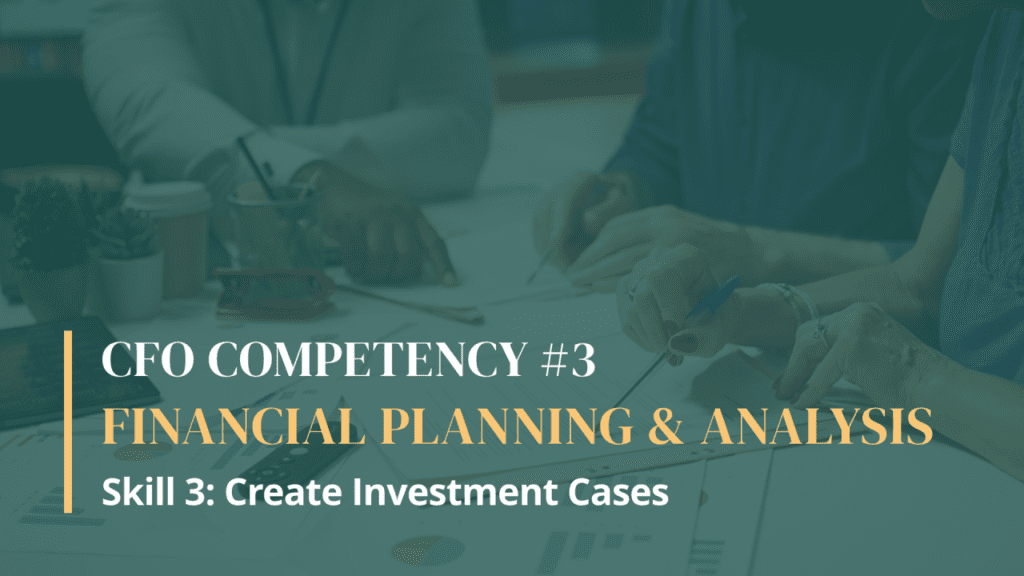Ten Reasons Why People Get Stuck at the Grade Below CFO

In any field of work, people tend to want to move up the ladder and secure better positions. In the world of finance, many team members consider becoming a CFO to be their ultimate goal.
Despite this, many people’s careers often stagnate at the grade below CFO. Landing your first CFO role is a big step up from other finance function roles and requires you to have a certain set of characteristics, experience, skills and knowledge that you cannot always obtain in other roles. You also need to be able to overcome the many barriers to landing your first dream role.
Here are five reasons why people get stuck at the grade below CFO and some tips for how to overcome them.
The CFO role is unique
The CFO role is unique in that it bridges the gap between the executive team and the finance team. As such, CFOs need to have a deep understanding of both worlds and be able to communicate effectively with both groups. This is very different to other finance function roles where people spend most of their time reviewing past transactions, completing tasks and creating reports. To overcome this, finance professionals need to take on more senior responsibility to help develop leadership skills and build wider relationships across the business.
Lack of board exposure
Many get stuck below CFO because they lack board exposure. They may not have had the opportunity to work with a board of directors or have had limited interactions with them. As a result, they are not familiar with the expectations and requirements of the role. To overcome this, it is important to seek out opportunities to work with a board. This could include volunteering for committees, attending board meetings, or even joining a board yourself.
Insufficient fundraising experience
Another reason many get stuck is because they have insufficient fundraising experience. The CFO is often responsible for leading equity and debt fundraising rounds. This requires a deep understanding of the financial markets and an ability to navigate the complex world of investment banking. If you want to overcome this barrier, it is important to seek out opportunities to learn about fundraising. This could include taking courses, completing a fundraising simulator, and building a peer group network with experience in this area.
Minimal involvement in strategy
The CFO is typically responsible for providing insights and guidance on strategic decisions and delivering the business plan. This requires a deep understanding of the business and an ability to think strategically. If you want to overcome this barrier, it is important to seek out opportunities to learn about strategy. This could include taking relevant courses, completing a strategy programme, or even working with a mentor who has experience in this area.
Insufficient soft skills
The CFO role is often responsible for representing the finance function to the executive team and the board of directors. This requires a high level of professionalism and an ability to build relationships with key stakeholders. If you want to overcome this barrier, it is important to focus on your interpersonal skills such as communication, relationship building and gravitas. You can do this by attending workshops, seeking out professional mentors, and working on your presentation skills.
Additional reasons
Five additional reasons why many people’s careers stagnate at the grade below CFO are:
- They don’t have the right skills and experience: If you want to become a CFO, you need to have the right skills and experience. This includes both hard skills like management reporting and strategy, as well as soft skills like leadership and communication. You also need to have a certain amount of work experience, preferably in a leadership role.
- They don’t have the right qualifications: To become a CFO, you need to have the right qualifications. This could include a degree in accounting or finance, an MBA, or a certified public accountant.
- They don’t have the right attitude: Being a CFO is not an easy job. It requires a lot of hard work, dedication and passion. If you don’t have the right attitude, you will find it difficult to progress up the ladder.
- They are held back by their boss: If your boss doesn’t believe in you or doesn’t think you’re capable of becoming a CFO, it will be difficult for you to move up the ladder. You need to have the support of your boss and team to progress.
- They don’t know how to network: Networking is an important part of progressing up the finance ladder. It allows you to meet people in similar positions and learn from their experiences. It also allows you to build relationships with people who can help you in your career.
Summary
If you’re stuck at the grade below CFO, don’t worry – there are ways to overcome these obstacles. By gaining the right skills and experience, qualifications and attitude, as well as networking with peer groups, you can quickly accelerate your career and land your ultimate dream CFO role.
If you would like additional support in landing the CFO role, find out more about our Future CFO Programme or attend an informational launch event.







Responses